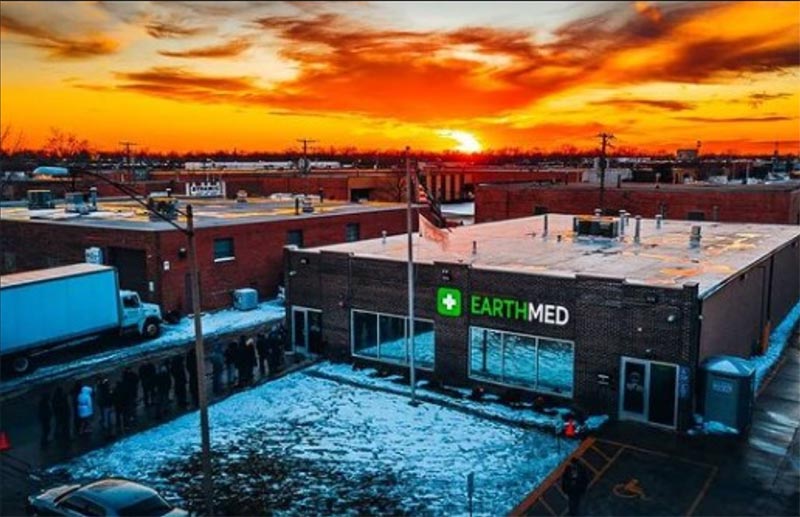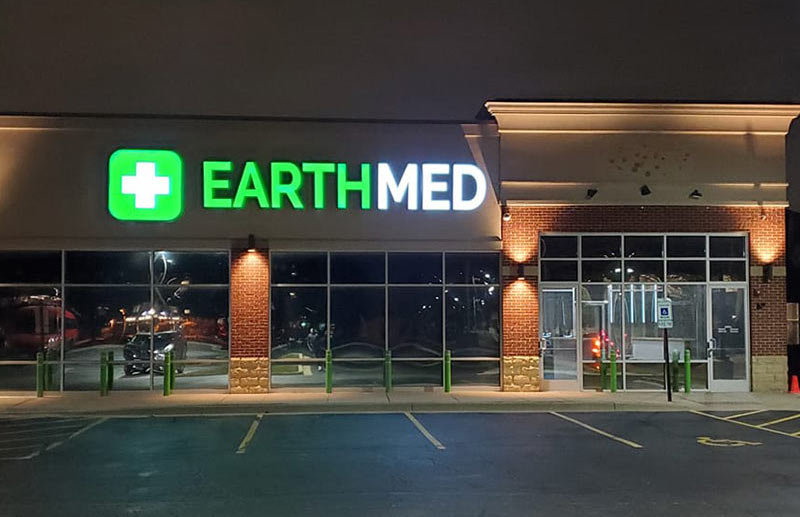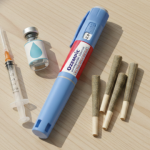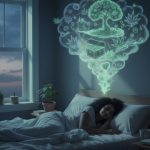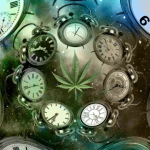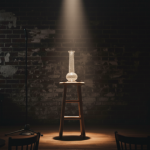Are you at least 21 years of age or hold a valid medical marijuana card?
Daily Specials
{{ special.title }}
{{ special.description }}
*{{ note }}EARTHMED BLOG

Is Marijuana a Gateway Drug & Other Marijuana Myths
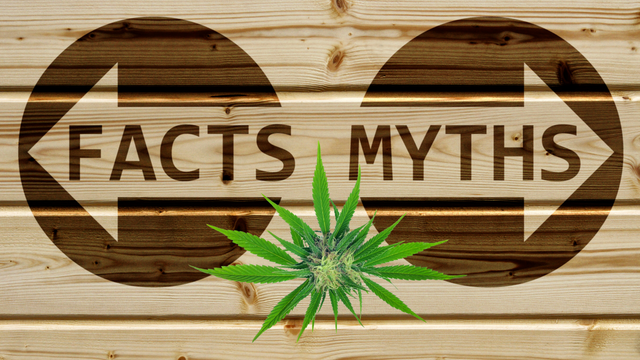
Growing up in the age of Drug Abuse Resistance Education (more commonly known as D.A.R.E.), the war on drugs was successful in that it made me (and most others in my generation) terrified of marijuana. As a teen and young adult seeing trusted adults in my life benefit from using marijuana medically, I began to question this school-led indoctrination. I wondered: Is marijuana a gateway drug to other “hard” drugs like we were always taught?
For me, the only thing marijuana was ever a gateway to was couch lock and Cheetos. But is there some truth behind the marijuana gateway drug myth and other popular health-related marijuana myths?
Is Marijuana a Gateway Drug?
Throughout the history of cannabis, weed often gets a bad rep and is usually the poster child of gateway drugs. However, contrary to what we were taught to be undisputed truth in D.A.R.E. class, the Centers for Disease Control and Prevention (CDC) states that “there is limited evidence suggesting that using marijuana increases the risk of using other drugs.” Fentanyl-laced weed is one example of an extreme case that isn't indicative of the usual cannabis experience, but according to the CDC, pot smokers are no more likely to use other controlled substances (such as cocaine and opiates) than non-cannabis users.
During my research on this topic, I found a curious lack of CDC articles or studies on alcohol to see whether alcohol use could be considered a gateway to other drugs. Apparently, nobody wants to know whether there is a correlation between early alcohol use and hard drug usage – or it does not behoove the alcohol industry and its deep pockets, to have this type of study widely available.
Does Marijuana Psychosis Happen?
In a word, yes – cannabis-induced psychosis is a genuine concern, especially as stronger, and more potent marijuana becomes widespread. According to an analysis of 20 studies with over 119,000 patients, Lancet Psychiatry found that frequent high-THC consumption could increase the risk of cannabis psychosis.
Potent marijuana is the norm these days. Most strains available at dispensaries are over 15% THC, compared to the 1960s up through the 1980s when the average THC content in marijuana was just 2%. Cannabis today is definitely not the grass that your parents smoked. If you struggle with mental illness or feelings of anxiety, depression, or self-harm, regularly using potent marijuana may exacerbate your struggles.
One way to potentially avoid cannabis psychosis, aside from reducing your use of high-THC pot, is to smoke CBD or indica-dominant cannabis flower. Since some sativa cannabis has been reported to increase anxiety, energy, focus, etc., it only makes sense that these strains can also increase anxious feelings and mental distress in susceptible individuals. If you are prone to mental illness struggles, take extra care when using cannabis. A little goes a long way, and too much can be a bad time for a long time.
Do You Need to Take Marijuana Tolerance Breaks?
As with most things in life, the more you use cannabis, the more you need to use to get the same effects. All regular cannabis connoisseurs have experienced their first hit not hitting as hard as it used to or puffing through their regular-sized stash more quickly than usual.
Marijuana tolerance is created due to the complex and mysterious endocannabinoid system (ECS) found in each of our bodies. Receptors for the ECS are found throughout the human body. Not just found in the brain, ECS receptors are responsible for regulating an incredible amount of processes in our organs, connective tissues, glands, and immune cells.
Since the molecules in cannabis fit like a key in the lock of ECS receptors, using marijuana activates the receptor and produces the desired effects of cannabis. After being activated repeatedly over time, the number of cannabinoid receptors in our body will decrease. This decrease in available receptors is what causes the dreaded tolerance.
To reset your ECS, all you need to do is abstain from cannabis. By not introducing exogenic cannabinoids into your ECS, the receptors begin to level out. The jury is out on how long your marijuana tolerance break should last, but a minimum of 48 hours and a maximum of 60 days is recommended for best results.
Personally, I have taken forced tolerance breaks and have definitely felt the post-t-break high in person. For me, the discomfort from the tolerance break is not worth the ECS reset. My trick to avoid needing a tolerance break is to pay close attention to what I am consuming, why I am consuming, how much I am consuming, and my method of consumption. Using my handy dandy Toke Tracker helps me ensure I stay on track and don’t feel the negative impacts of heavy daily cannabis use. If I feel like I am starting to consume more to get the same effects, I switch it up or decrease my usage.
Marijuana myths abound in popular culture. With the marijuana legalization effort picking up steam in the United States, academia is finally getting the opportunity to explore these myths in order to debunk or prove them. Stay tuned for part two of this post, where we will discuss other marijuana myths and whether they are fact or cap.
Do you have marijuana myths you have wondered about? Hit me up on social media, and let’s spark up a conversation!
{{ locations[0].name }}
{{ locations[0].address }}{{ locations[0].city }}, {{ locations[0].state }} {{ locations[0].zip }}
{{ locations[0].phone }}
Hours
Sun: {{ locations[0].hours_recreational.Sunday }}Mon: {{ locations[0].hours_recreational.Monday }}
Tue: {{ locations[0].hours_recreational.Tuesday }}
Wed: {{ locations[0].hours_recreational.Wednesday }}
Thu: {{ locations[0].hours_recreational.Thursday }}
Fri: {{ locations[0].hours_recreational.Friday }}
Sat: {{ locations[0].hours_recreational.Saturday }}
{{ locations[1].name }}
{{ locations[1].address }}{{ locations[1].city }}, {{ locations[1].state }} {{ locations[1].zip }}
{{ locations[1].phone }}
Hours
Sun: {{ locations[1].hours_recreational.Sunday }}Mon: {{ locations[1].hours_recreational.Monday }}
Tue: {{ locations[1].hours_recreational.Tuesday }}
Wed: {{ locations[1].hours_recreational.Wednesday }}
Thu: {{ locations[1].hours_recreational.Thursday }}
Fri: {{ locations[1].hours_recreational.Friday }}
Sat: {{ locations[1].hours_recreational.Saturday }}
